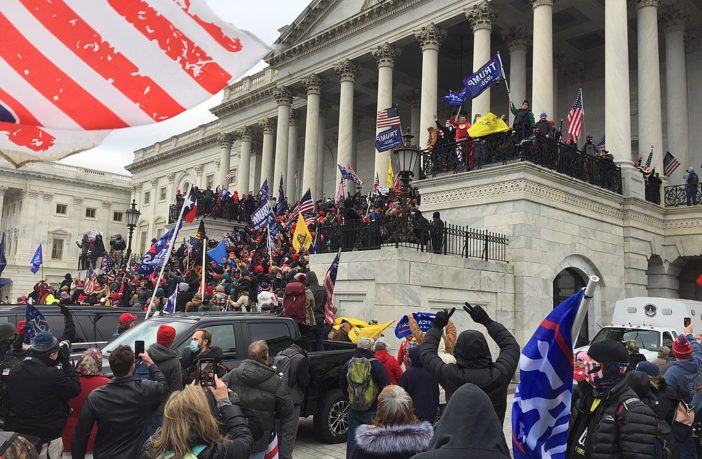In a legal battle with potential ramifications for former President Donald Trump’s ongoing trial, the U.S. Supreme Court is set to scrutinize the scope of a federal obstruction statute.
The case, Fischer v. U.S., revolves around applying this law to the Jan. 6, 2021, Capitol breach and could influence the prosecution of hundreds involved in the incident.
The Fischer v. U.S. Case
Joseph Fischer, a former Pennsylvania police officer charged with the Capitol breach, brought the case before the Supreme Court. Fischer attended the “Stop the Steal” rally and later entered the Capitol. He faced charges including assaulting a police officer, disorderly conduct, and obstructing an official proceeding.
Initially, U.S. District Judge Carl Nichols dismissed Fischer’s obstruction charge. However, the U.S. Court of Appeals for the District of Columbia Circuit overturned the decision, adopting a broader interpretation of the obstruction statute.
The D.C. Circuit ruled that the statute covers “all forms of corrupt obstruction of an official proceeding,” extending beyond actions involving documents or records. Fischer’s lawyers appealed to the Supreme Court, arguing for a narrower interpretation to protect constitutionally protected activities like lobbying or peaceful protests.
Implications for Jan. 6 Defendants and Trump
If the Supreme Court narrows the law’s scope, it could affect numerous defendants convicted under the broader interpretation. These defendants might seek resentencing, withdraw guilty pleas, or request new trials.
For Trump, the outcome of Fischer v. U.S. could be significant. Trump faces charges of obstructing Congress’ Electoral College vote count and conspiring to obstruct the proceeding. If the court sides with Fischer, Trump could seek to have two counts related to obstruction of an official proceeding dismissed.
The Broad vs. Narrow Interpretation
The core issue in Fischer v. U.S. is whether federal prosecutors can apply a law passed after the Enron scandal to the Jan. 6 assault. The law makes it a crime to “corruptly” obstruct or impede an official proceeding. Defense attorneys argue that the Justice Department has stretched the statute too far.
Before Jan. 6, the law had only been used in evidence tampering cases. However, since the Capitol breach, it has been used against over 330 defendants. The Justice Department contends that the law’s text, context, and history support its broad application to obstructive conduct in court, agency, and congressional proceedings.
The Upcoming Supreme Court Decision
The Supreme Court’s decision in Fischer v. U.S. is expected by the end of June. The case’s outcome could shape the legal landscape for prosecuting Jan. 6 defendants and influence Trump’s trial, which has been on hold as he seeks dismissal of all charges based on claims of presidential immunity.
Special counsel Jack Smith, who brought charges against Trump, maintains that the charges remain valid regardless of the court’s ruling in Fischer v. U.S.
Smith accuses Trump of orchestrating a scheme to overturn the 2020 election outcome by creating fake elector slates and urging state officials to submit false certificates to Congress.



